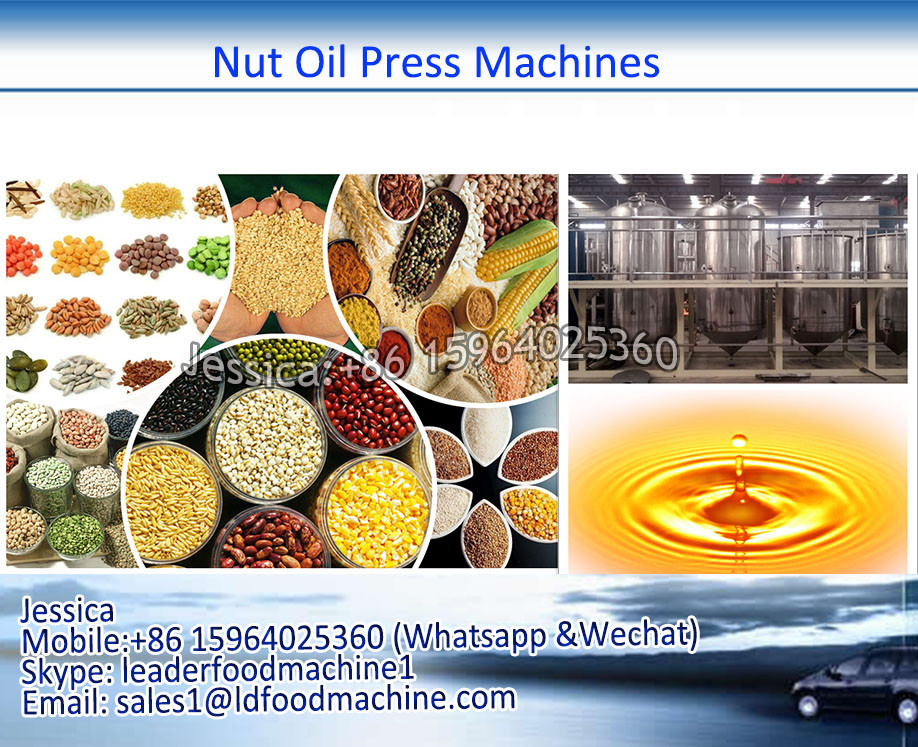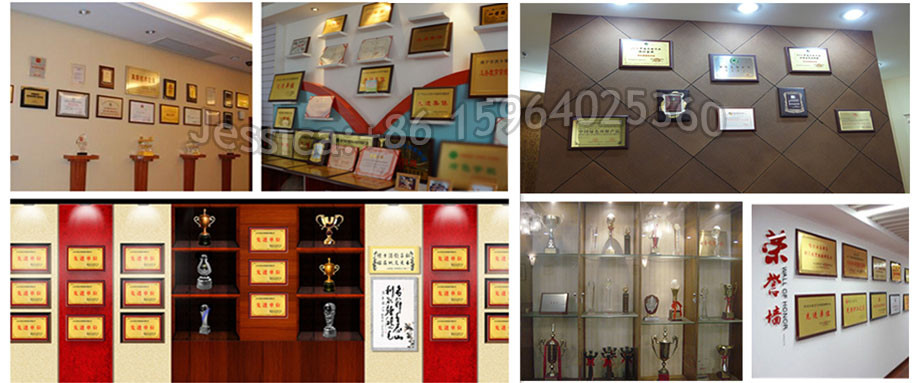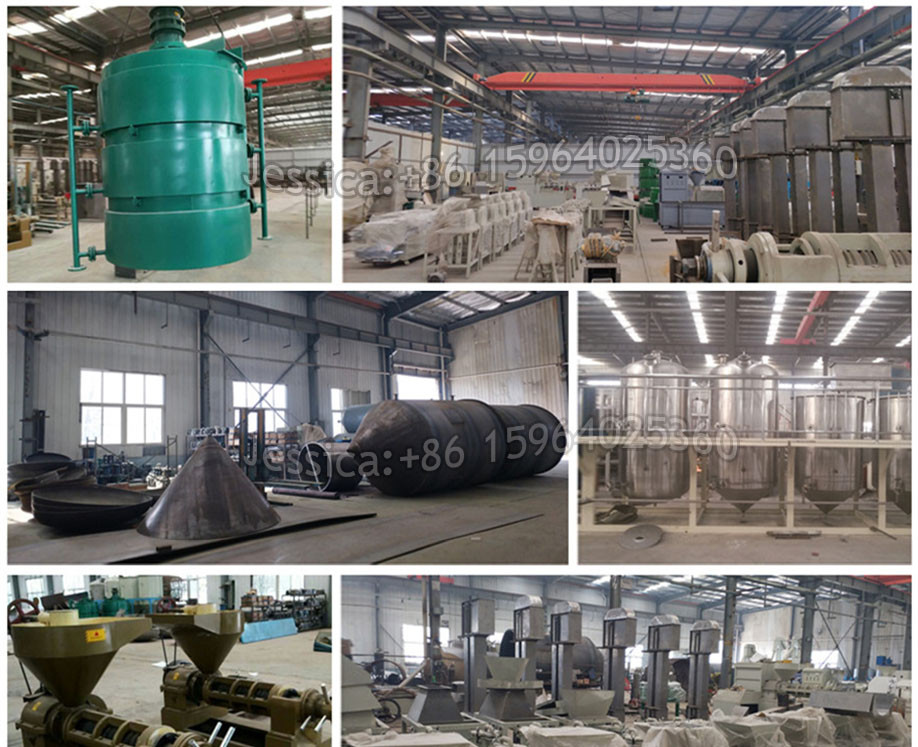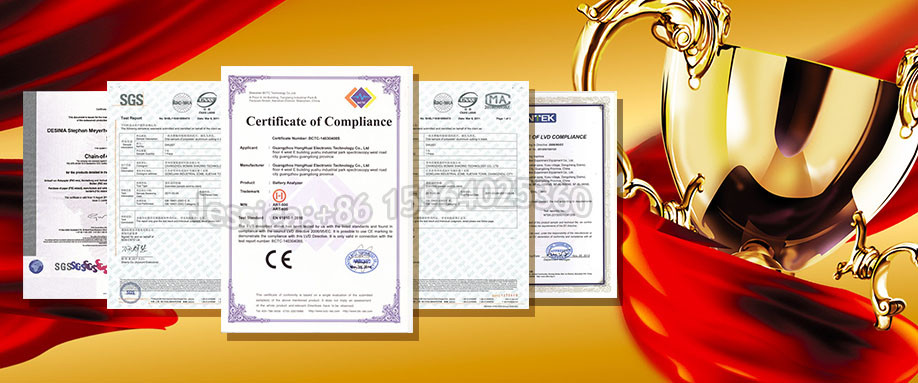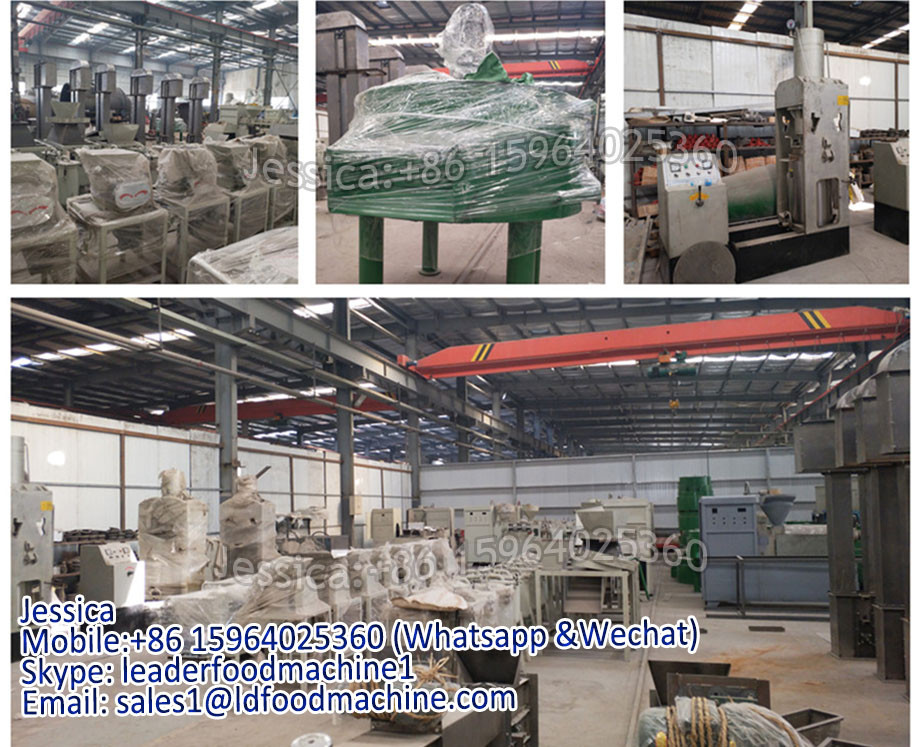Small cold press oil machine
Expeller pressing (also called oil pressing) is a mechanical method for extracting oil from raw materials. The raw materials are squeezed under high pressure in a sinLDe step. When used for the extraction of food oils, typical raw materials are nuts, seeds and algae, which are supplied to the press in a continuous feed. As the raw material is pressed, friction causes it to heat up; in the case of harder nuts (which require higher pressures) the material can exceed temperatures of 120 °F (49 °C).
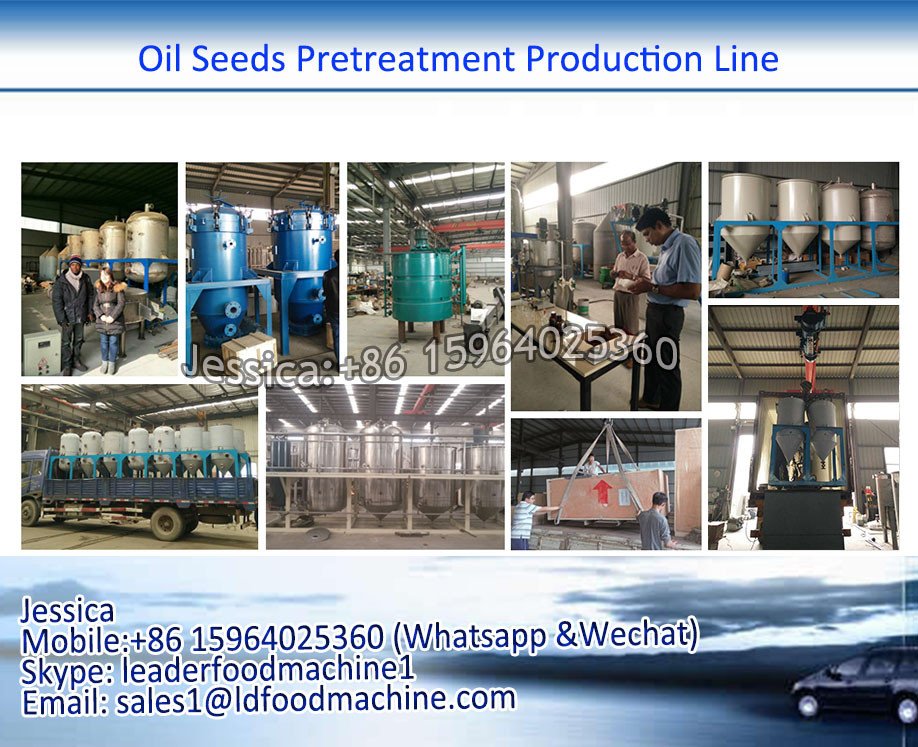
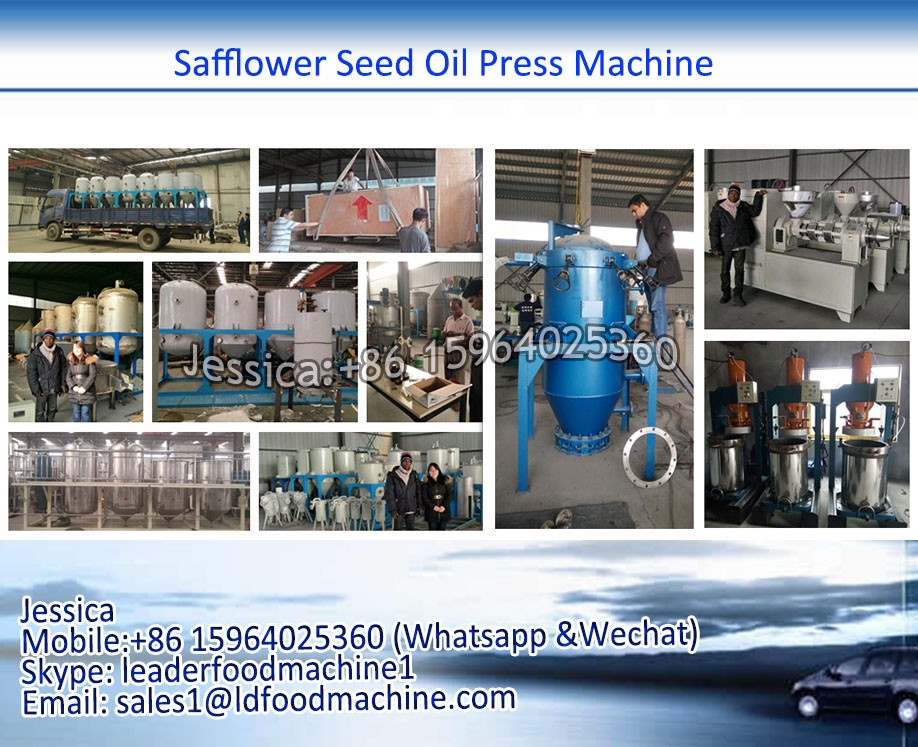
Overview
An expeller press is a screw-type machine that presses oil seeds through a caged barrel-like cavity. Raw materials enter one side of the press and waste products exit the other side. The machine uses friction and continuous pressure from the screw drives to move and compress the seed material. The oil seeps through small openings that do not allow seed fiber solids to pass through. Afterward, the pressed seeds are formed into a hardened cake, which is removed from the machine. Pressure involved in expeller pressing creates heat in the range of 140–210 °F (60–99 °C). Some companies claim that they use a cooling apparatus to reduce this temperature to protect certain properties of the oils being extracted.
Efficiency
Oil expeller cannot remove every last trace of liquid (usually oil) from the raw material. A significant amount remains trapped inside of the cake leftover after pressing. In most small scale rural situations this is of little or no importance as the cake that remains after the oil has been removed finds uses in local dishes, in the manufacture of secondary products or for animal feed. Some raw materials however do not release oil by simple expelling; the most notable being rice bran. In order to remove oil from commodities that do not respond to expelling or to extract the final traces of oil after expelling it is necessary to use solvent extraction.
Main technical parameters:
Model |
6YL-80 |
6YL-100 |
6YL-120 |
6YL-130 |
6YL-160 |
Screw speed |
30-45 r/min |
30-40 r/min |
30-40 r/min |
28-40 r/min |
28-40 r/min |
gear ratio |
14/42x19/57=1:6.63 |
15/40x15/55=1:9.78 |
15/34x15/55=1:9.59 |
15/38x19/48=1:7.38 |
15/38x15/52=1:8.78 |
Dimension |
1650x1150x1750 |
1950x1300x1900 |
2050x1350x2000 |
2200x1600x2150 |
2500x1600x2500 |
Productivity |
80-150kg/h |
150-250kg/h |
200-300kg/h |
250-400kg/h |
450-600kg/h |
Power |
Y160L-6-5.5KW |
Y160M-6-7.5KW |
Y160L-6-11KW |
Y180L-6-15KW |
Y200L-6-18.5KW |
Vacuum pump |
Y90S-4-0.55KW |
Y90S-4-1.1KW |
Y100L1-4-1.5KW |
Y100L1-4-2.2KW |
Y100L1-4-2.2KW |
Heater |
2KW |
3KW |
3.3KW |
3.8KW |
4KW |
The above parameters is according to oil material that is refined, separated, flaked, steamed and fired, and the auxiliary equipments are complete with reasonable techniques.
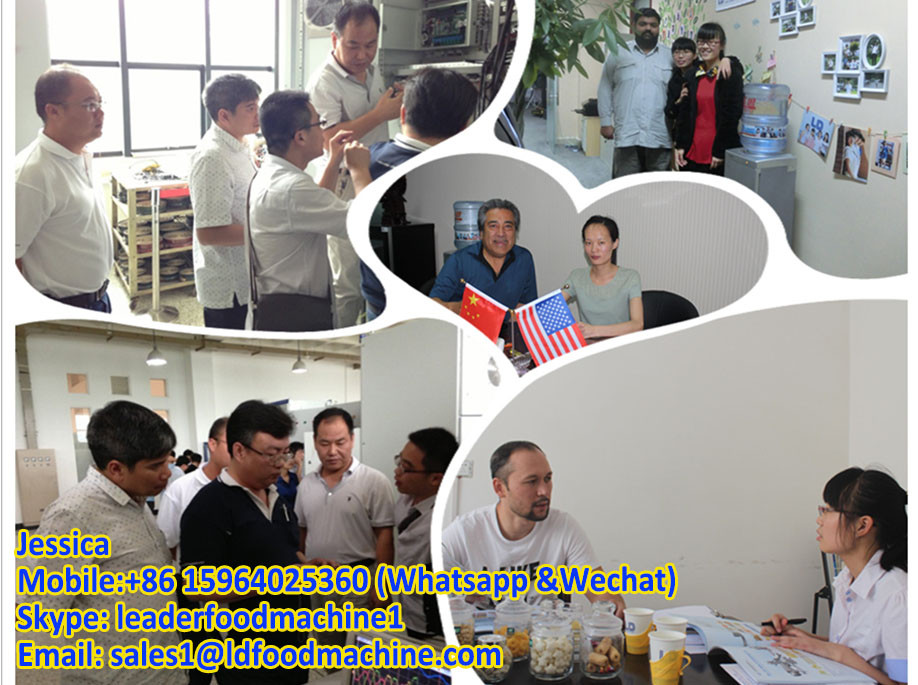
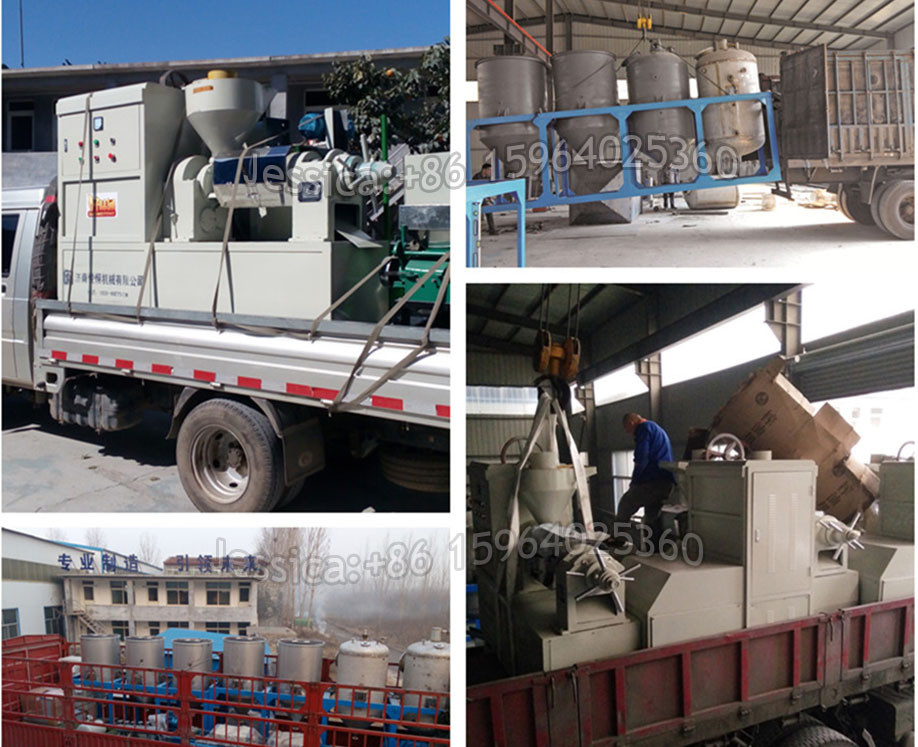
Operating principle:
1.When oil press is on work, material enters the extruding chamber from the hopper and then moves forwards by the rotating pressing screw and is pressed.
2.Under hightemperature condition in the chamber, there is quite strong friction among press screw, chamber and the oil materials.
3.On the other hand, root diameter of the pressing screw carries larger from one end to the other.
4.Hence when rotating, the thread not only pushes particles moving forwards but also turns them outwards as well.
5.Meanwhile, particles adjacent the screw will rotate along with screw’s rotating, causing every particle inside the chamber to possess different speed.
6.Therefore, relative movement among particles creates neat which is necessary during manufacturing because of helping protein change property, damage colloid, increase plasticity, decrease oil’s elasticity, resulting in high oil.
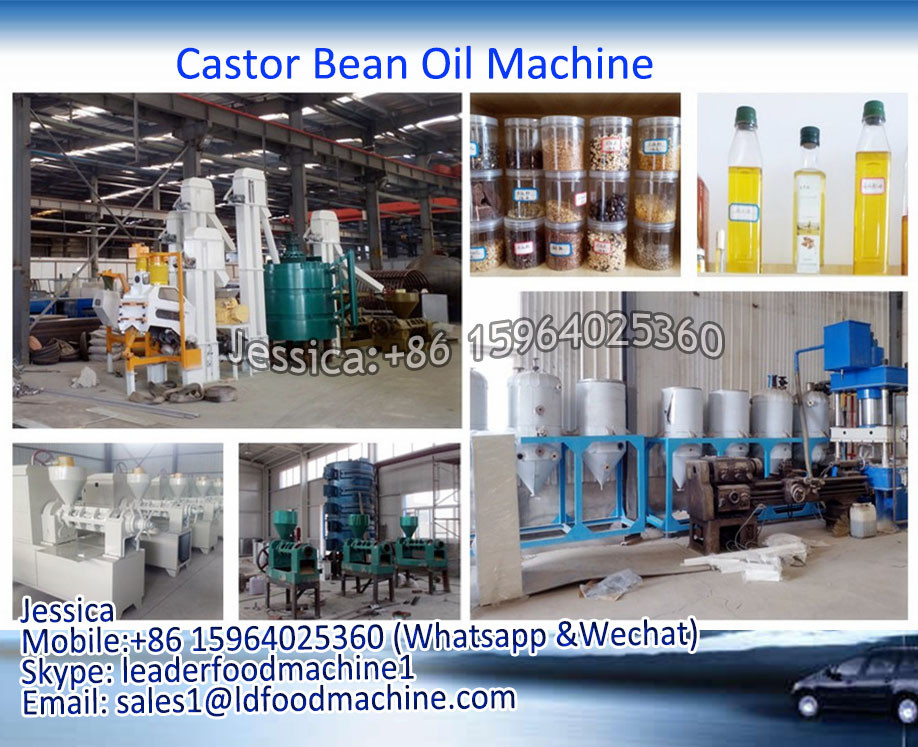

Construction features:
6YL series spiral oil press is mainly composed of 7 major parts of screw axis, press cage, feed mechanism, cake yielding mechanism. transmission system, electric control part and vacuum filter part. All the parts are assembled on the frame and screwed as a whole.
Characters:
Simple design , easy to operate , wide suitability , continuous operation, high productivity and high oil product ratio.
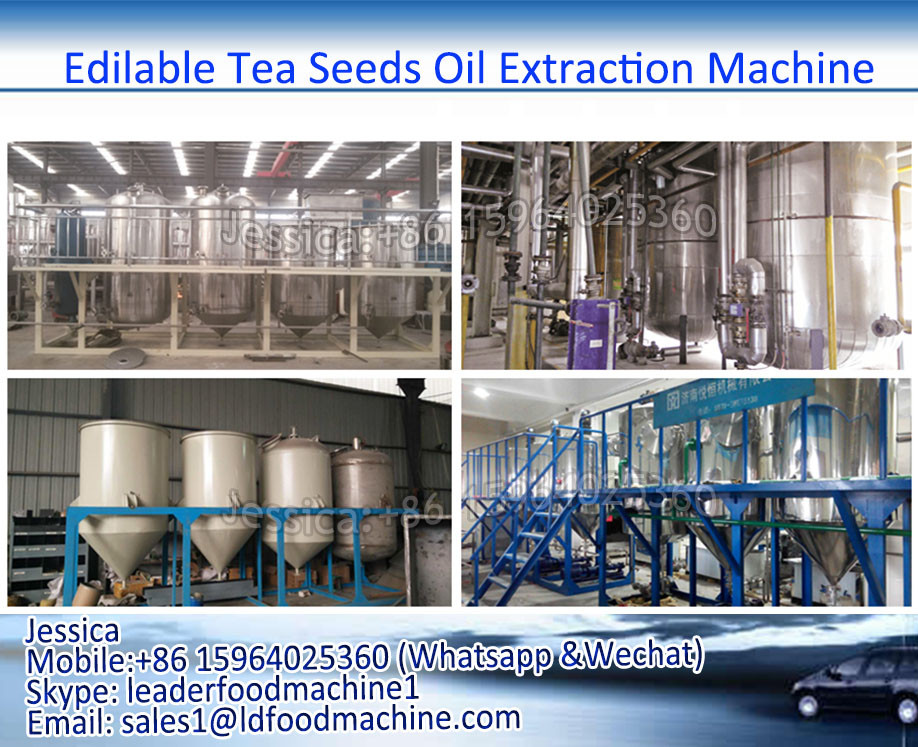

workshop
